-
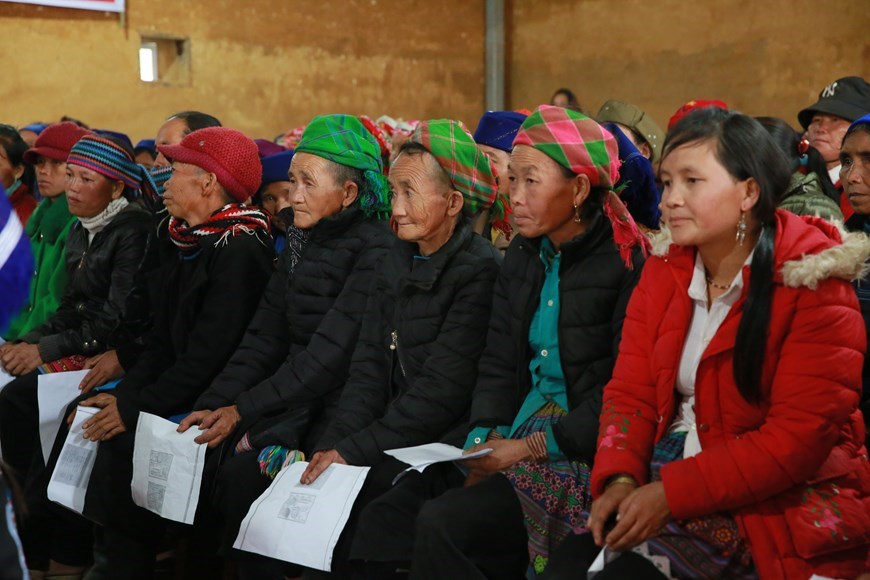
As many as 600 impoverished ethnic families in four communes of Lao Cai receive financial assistance from the United Nations Entity for Gender Equality and the Empowerment of Women (UN Women). It is the UN entity dedicated to gender equality and the empowerment of women. UN Women was established to accelerate progress on meeting their needs worldwide. UN Women supports UN Member States as they set global standards for achieving gender equality, and works with governments and civil society to design laws, policies, programmes and services needed to ensure that the standards are effectively implemented and truly benefit women and girls worldwide. (Photo: VietnamPlus)
-
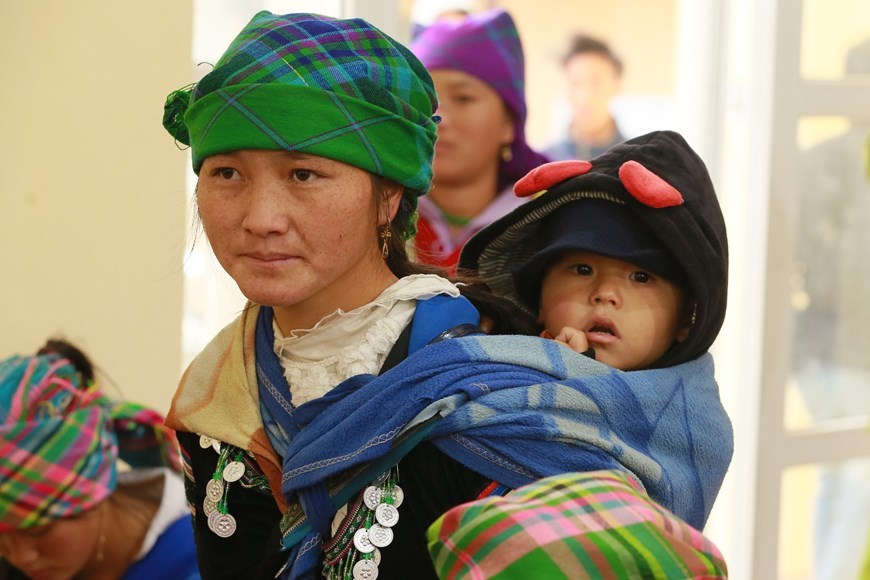
The assistance aims to help local residents living in difficult circumstances, primarily women of ethnic minority groups. They, especially those in remote areas, are still challenged by gender inequality. With several projects on empowering women in place, they are expected to thrive and affirm their role in their community. Efforts are being made to end violence and abuse against women and girls. This year, Vietnam ranks 68th out of 166 countries in the gender development index. It is also one of 10 countries to fulfil the goal of promoting gender equality and empowering women and girls as part of the UN Sustainable Development Goals. (Photo: VietnamPlus)
-
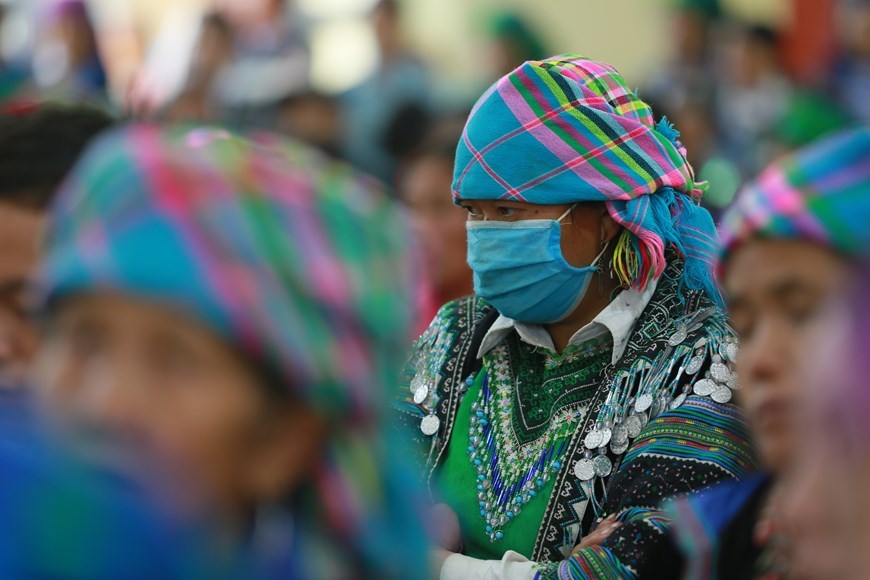
The COVID-19 pandemic and social distancing measures have dealt a major blow to livelihoods of many people, especially the most vulnerable groups such as women. It has limited women’s roles in different aspects. Women are worried about being infected when they go out, limiting their opportunities to take part in community activities outside. During the pandemic, women also suffer from stress due to bearing more burden of taking care of families, especially their children when schools are closed. According to experts, catching up with knowledge on science, technology and health is one of the biggest challenges of women in the post-pandemic period. (Photo: VietnamPlus)
-

An aid package worth more than 1.3 billion VND (about 56,240 USD) is sourced from the UN’ COVID-19 Response and Recovery Fund. The fund is to support rapid social and economic recovery in middle and lower-income countries. It is designed to complement on-going efforts by the UN development system to repurpose a significant proportion of its 17.8 billion USD portfolio of sustainable development programmes towards COVID-19 needs, with additional investments in socio-economic responses. The Fund is designed to enable rapid action across the five pillars of the UN framework for the immediate socio-economic response to COVID-19, and to generate practical solutions that can inform larger flows from other actors. (Photo: VietnamPlus)
-
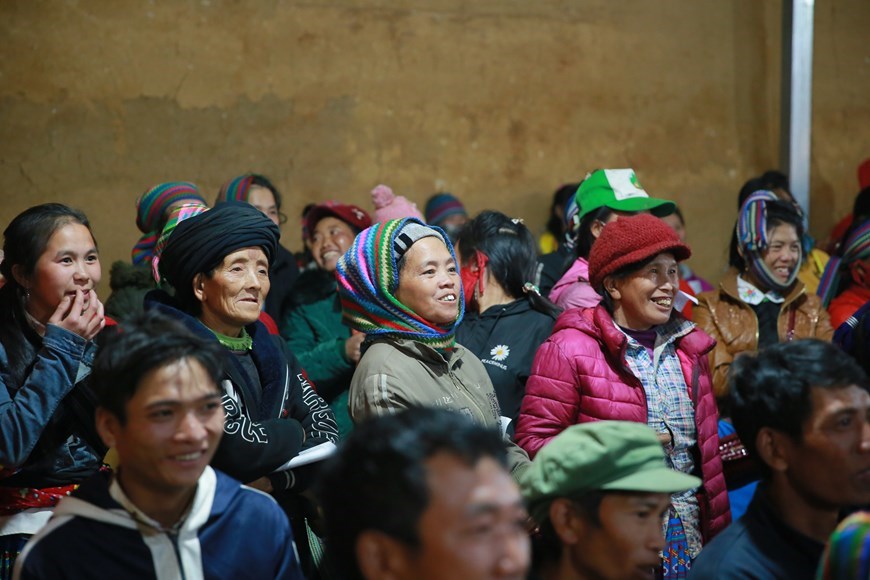
Ethnic people make up 14 percent of the country’s population. The Party and State have given priority to allocating resources to programmes on education, health care, infrastructure and socio-economic development for ethnic and mountainous areas, accounting for 71.4 percent of the expenditure for the work. As a result, 99 percent of communal centres and 80 percent of villages have accessed to electricity, 65 percent of communes have small irrigation systems, 80 percent of villages build roads for vehicles, more than half of the communes own standard medical stations while all ethnic people and the poor have been provided with free health insurance. (Photo: VietnamPlus)
-
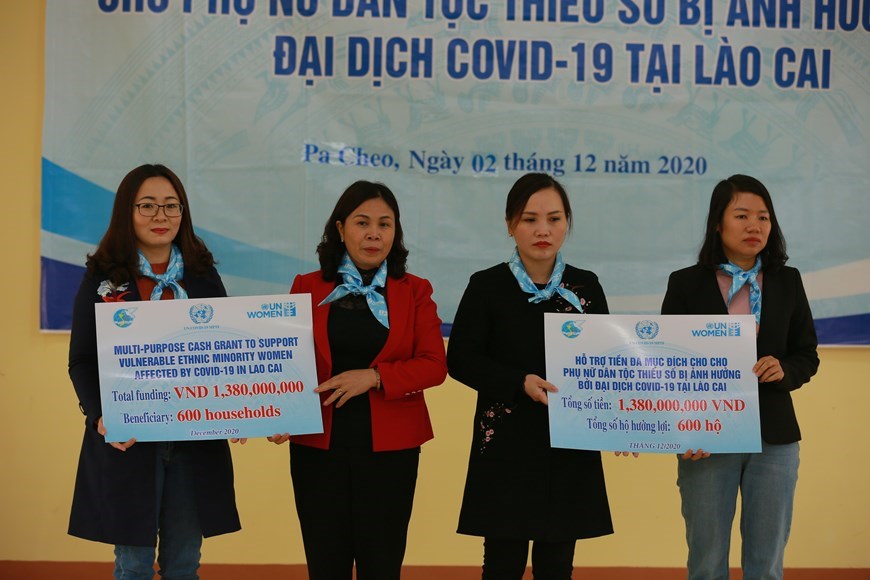
UN Women coordinates with the Women’s Union of Lao Cai province to distribute cash in support of hardest-hit ethnic women by COVID-19 in the locality. Lao Cai is home to 25 ethnic groups, with the Kinh as the most populous and 24 other ethnic groups such as Hmong, Tay, Dao, Giay, Nung and Phu La. Local authorities are paying attention to developing community-based tourism to create jobs and improve the living standards for local people. Ethnic cultural identity becomes resources to promote socio-economic development of Lao Cai province, which has a population of 674,530, according to the statistics released in 2016. (Photo: VietnamPlus)
-
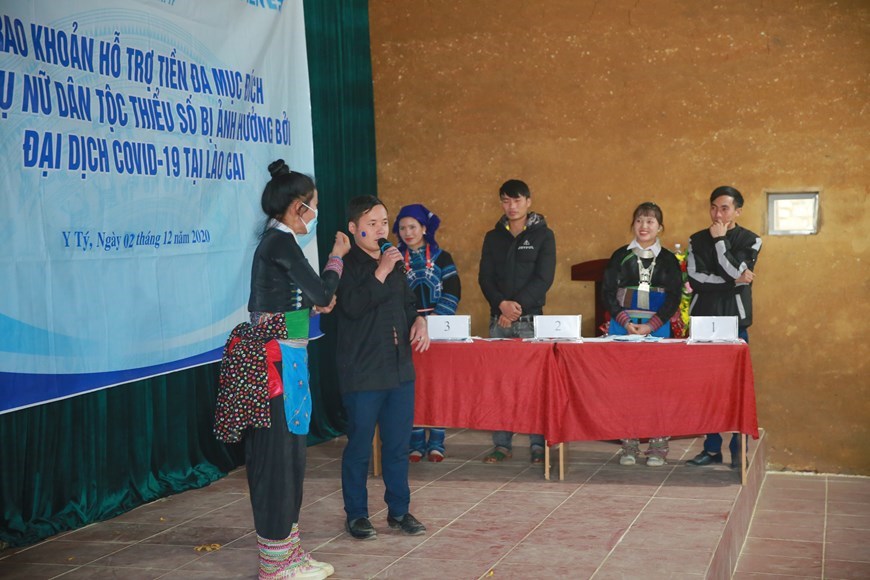
The initiative adds up to current support of the Government for those who are the most vulnerable to the COVID-19 pandemic. According to experts, the pandemic has caused great impacts on ethnic households, families with informal labourers and migrants, leading to temporary poverty due to low incomes. In Vietnam, more than 30 million people are estimated to have been affected by the pandemic, with half of them suffering a pay cut. In rural areas, half of all households have experienced a 38 percent decrease in their income from farming. It has affected quality and access to essential social services like maternal and child health care, education and support services for these households. (Photo: VietnamPlus)
-
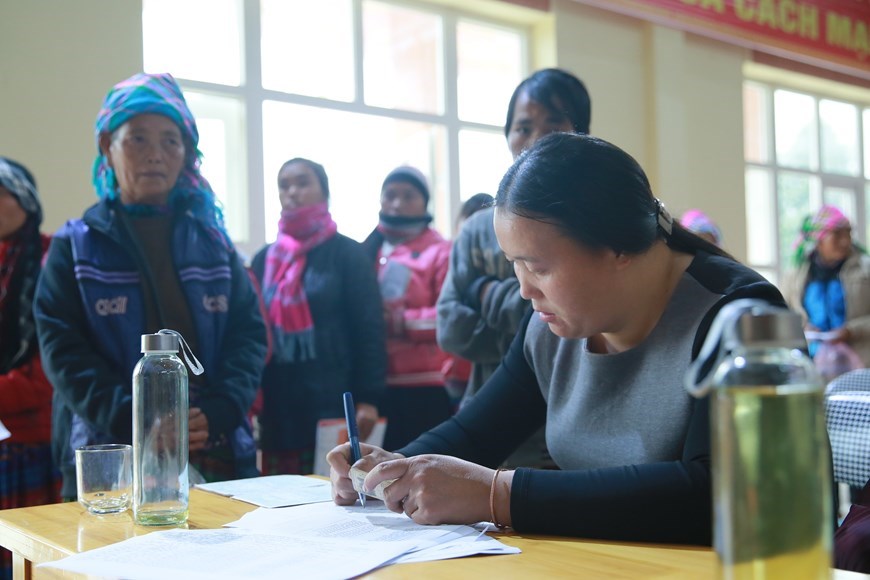
8. Women are the victims of all kinds of conflicts. When women are on the backside of the conflicts, they are even more seriously impacted, especially with invisible effects. Unpaid employment for women is an example where many businesses have reduced female employees and cut down on salary. Although women face a great deal of challenges during the COVID-19 pandemic, their roles in the family and community has never faded. As there are a large number of women working in education and healthcare, there are a lot of opportunities for women to play a greater role in those fields. Women can become the people who educate their children and encourage family members to protect the environment. (Photo: VietnamPlus)
-
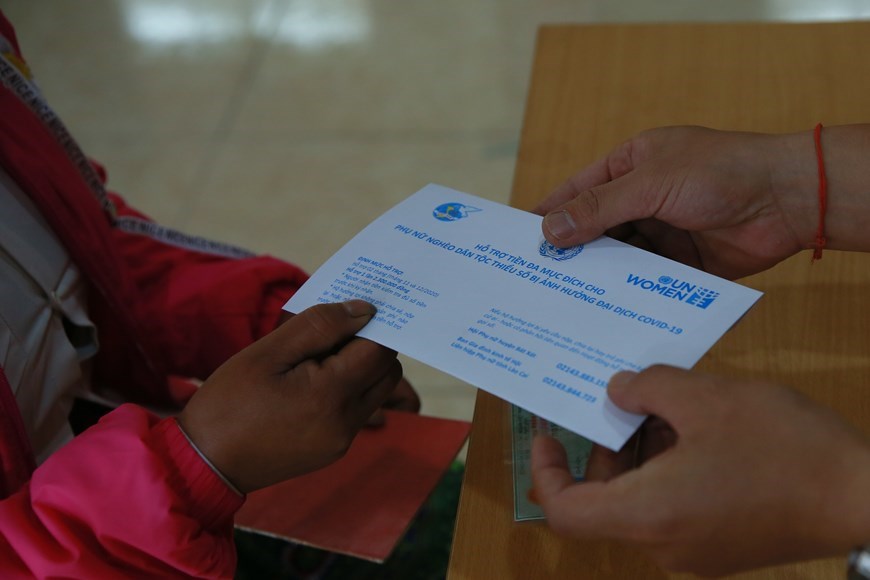
Each family receive 2.3 million VND in cash to improve their living conditions. In Vietnam, more than 30 million people are estimated to have been affected by the pandemic, with half of them suffering a pay cut. In rural areas, half of all households have experienced a 38 percent decrease in their income from farming. Most Vietnamese families were large with many generations living under the same roof and the pandemic has greatly affected their income and livelihoods. It has also affected quality and access to essential social services such as maternal and child health care as well as education and support services for these households. (VietnamPlus)
-
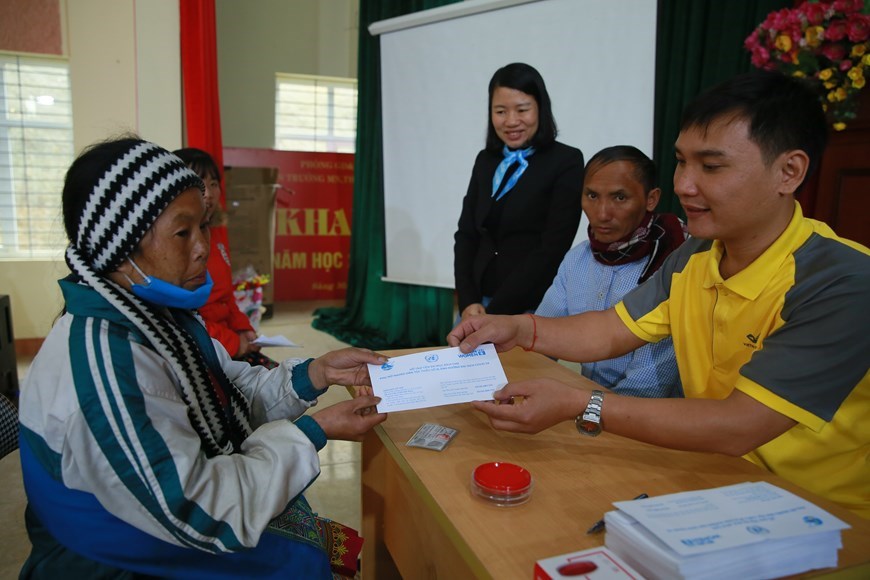
The sum will help local people buy food, necessities and invest in livelihoods during the pandemic. In April, the Government approved a support package of more than 62 trillion VND to support 20 million affected people. The package targeted six categories of individuals and businesses. The COVID-19 pandemic has caused great impacts on ethnic households, families with informal labourers and migrants, leading to temporary poverty due to low incomes. In Vietnam, more than 30 million people are estimated to have been affected by the pandemic, with half of them suffering a pay cut. In rural areas, half of all households have experienced a 38 percent decrease in their income from farming. (Photo: VietnamPlus)
-

Some 600 households in Lao Cai, all of them poor and of ethnic groups, receive the aid. The province is home to 25 ethnic groups, with the Kinh as the most populous and 24 other ethnic groups such as Hmong, Tay, Dao, Giay, Nung and Phu La. Local authorities are paying attention to developing community-based tourism to create jobs and improve the living standards for local people. Lao Cai with a mild climate and unique cultural traditions of the ethnic groups has developed many tourist models. It is also one of the first provinces in Vietnam to apply a community tourism development model associated with poverty reduction for ethnic minorities. (Photo: VietnamPlus)
-
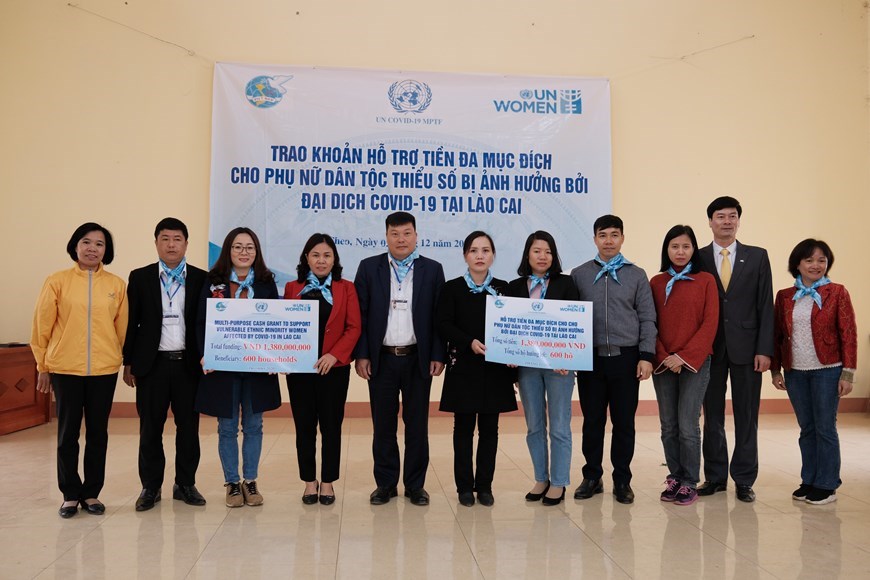
In case the beneficiaries could not make to the handover event, the aid will be sent to them by post. Each family receive 2.3 million VND in cash to improve their living conditions. According to experts, the COVID-19 pandemic has caused great impacts on ethnic minority households, families with informal labourers and migrants, leading to temporary poverty due to low incomes. In Vietnam, more than 30 million people are estimated to have been affected by the pandemic, with half of them suffering a pay cut. In rural areas, half of all households have experienced a 38 percent decrease in their income from farming. (Photo: VietnamPlus)
-
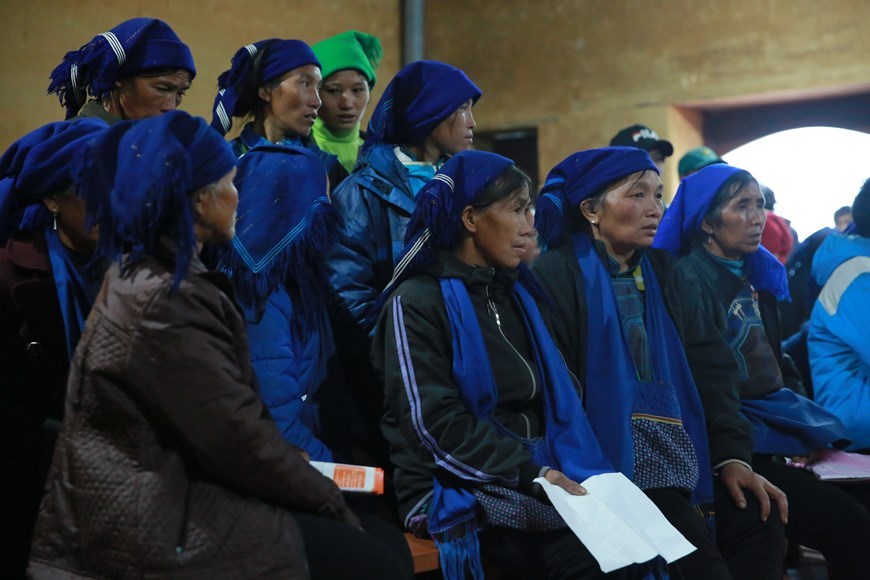
The beneficiaries at the event. The COVID-19 pandemic and social distancing measures have dealt a major blow to livelihoods of many, especially the most vulnerable groups such as women. It had limited women’s roles in different aspects. Women are worried about being infected when they go out, limiting their opportunities to take part in community activities outside. During the pandemic, women also suffer from stress due to bearing more burden of taking care of families, especially when schools were closed. According to experts, one of the biggest challenges of women in the post-COVID-19 period is they have to catch up with knowledge on science, technology and health. (Photo: VietnamPlus)
-
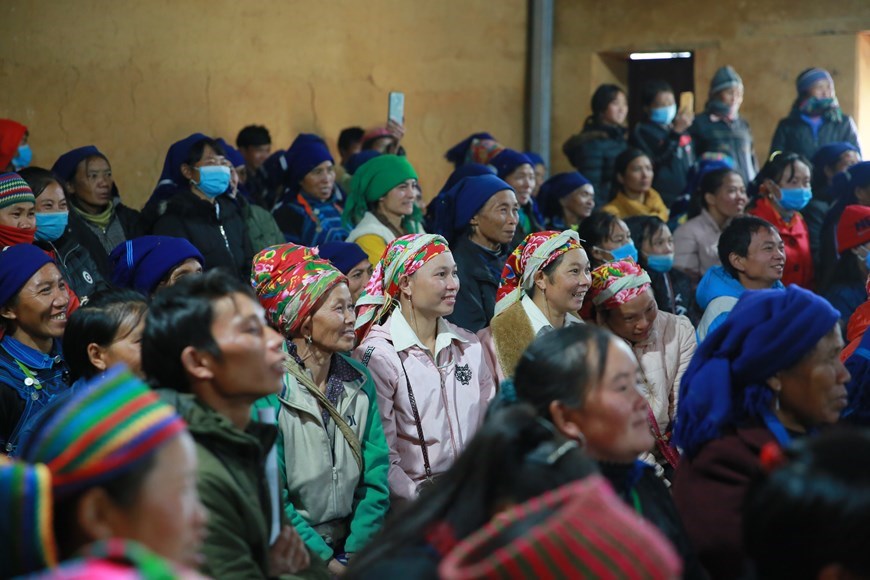
Participants of the ceremony to hand over the assistance. The aid aims to help those who are in difficult situations, primarily women of ethnic minority groups. They, especially those in remote areas, are still challenged by gender inequality. The sum will help local people buy food, necessities and improve livelihoods during the pandemic time. The package worth more than 1.3 billion VND (about 56,240 USD) is sourced from the United Nations’ COVID-19 Response and Recovery Fund. It is designed to enable rapid action across the five pillars of the UN framework for the immediate socio-economic response to COVID-19, and to generate practical solutions that can inform larger flows from other actors. (Photo: VietnamPlus)
UN Women supports ethnic women in Lao Cai
A total of 600 poor households of ethnic groups in four communes of the northern mountainous province of Lao Cai which were severely affected by the COVID-19 pandemic received financial assistance to buy food and improve their livelihoods on December 4.


